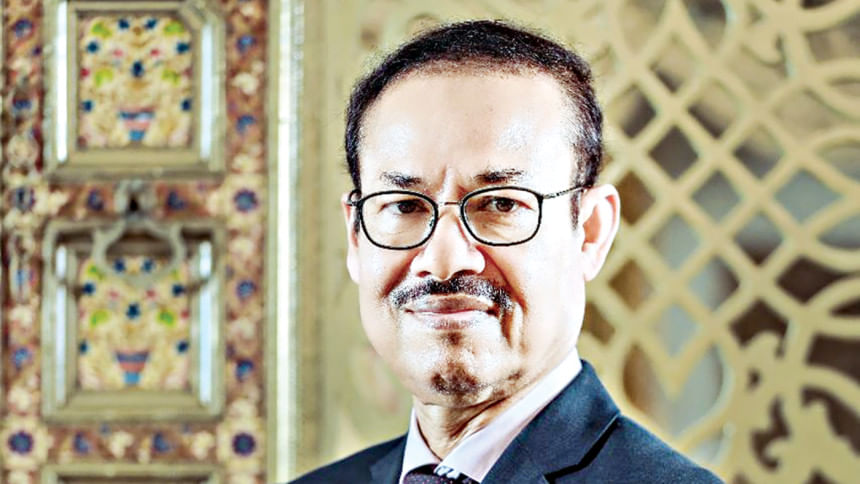Non-banks deserve equal protection

The Bangladesh Bank's recent decision to merge five distressed Islamic banks into a single entity has been widely praised as a bold move to protect depositors and preserve financial stability. The aim is clear: to prevent contagion and sustain public confidence in the banking system. Yet, in sharp contrast, the central bank's decision to liquidate nine non-bank financial institutions (NBFIs) tells a different story, one of inconsistency and unequal treatment. While failing banks are being rescue...
The Bangladesh Bank's recent decision to merge five distressed Islamic banks into a single entity has been widely praised as a bold move to protect depositors and preserve financial stability. The aim is clear: to prevent contagion and sustain public confidence in the banking system. Yet, in sharp contrast, the central bank's decision to liquidate nine non-bank financial institutions (NBFIs) tells a different story, one of inconsistency and unequal treatment. While failing banks are being rescued through state-backed mergers, NBFIs in similar distress are being allowed to collapse, leaving their depositors abandoned and unprotected.
This disparity strikes at the heart of fairness in financial regulation. NBFIs, like banks, mobilise large sums from thousands of small investors -- teachers, retirees and low-income savers -- who were drawn by slightly higher returns. These people now face the prospect of losing everything, while bank depositors enjoy the security of official intervention. Both sets of institutions suffered from the same root causes: reckless lending, political interference and weak oversight. Yet the regulator appears to have one rule for banks and another for everyone else.
Both banks and NBFIs fall under the supervision of the Bangladesh Bank. Many of the affected NBFIs are also listed on the stock market and subject to oversight by the Bangladesh Securities and Exchange Commission (BSEC). They underwent regular audits and received clean reports. No warning signals were ever issued to depositors, either by the regulators or by the auditors. If the watchdogs failed to bark, how can the victims be blamed?
It is worth recalling that NBFIs once played a vital role in advancing financial inclusion. They financed micro, small and medium enterprises (MSMEs) that traditional banks often ignored. But success bred complacency. Over time, many NBFIs abandoned their development focus, chasing big corporate clients and politically connected conglomerates. With weak governance and even weaker oversight, they became easy prey for powerful interests.
The stories of collapse are depressingly familiar. The S Alam Group, already linked to the troubled Islamic banks, extended its influence into several NBFIs. Others were plundered by fraudsters such as PK Haldar. The central question remains: where was the Bangladesh Bank? It either missed the warning signs or chose to look away. The price of that negligence is now being paid by ordinary citizens.
The logic of rescuing banks while liquidating NBFIs is both morally and financially flawed. Saving banks through mergers costs far more than restructuring smaller NBFIs. With modest intervention, such as fresh governance, asset recovery and liquidity support, many NBFIs could have been revived at a fraction of the expense. Instead, liquidation not only wipes out small savers but also erodes public trust in non-bank financial channels that are crucial for MSME financing. The message it sends is chilling: in Bangladesh's financial system, some depositors matter more than others. As Orwell wrote in Animal Farm, "All animals are equal, but some are more equal than others."
The inequality runs deeper. Bank depositors enjoy a statutory deposit protection scheme that guarantees them a basic safety net. NBFI depositors have no such shield. They must wait until July 2028 before they receive any legal coverage under a new framework. Until then, they remain entirely exposed, a second-class category of savers in a supposedly unified financial system.
If Bangladesh truly seeks to restore confidence in its financial institutions, it must apply the same principles of fairness and accountability across the board. Distressed NBFIs that remain viable should be rehabilitated, not buried. Regulators must be held accountable for their failures, and oversight mechanisms must be insulated from political and corporate influence.
Financial regulation cannot be a tale of two systems, one compassionate and interventionist for banks, another callous and indifferent for NBFIs. Fairness, consistency and transparency must be its cornerstones. Only then can the Bangladesh Bank rebuild the trust it has lost and reaffirm its commitment to justice, integrity and the rule of law.
The writer is chairman of Unilever Consumer Care Ltd